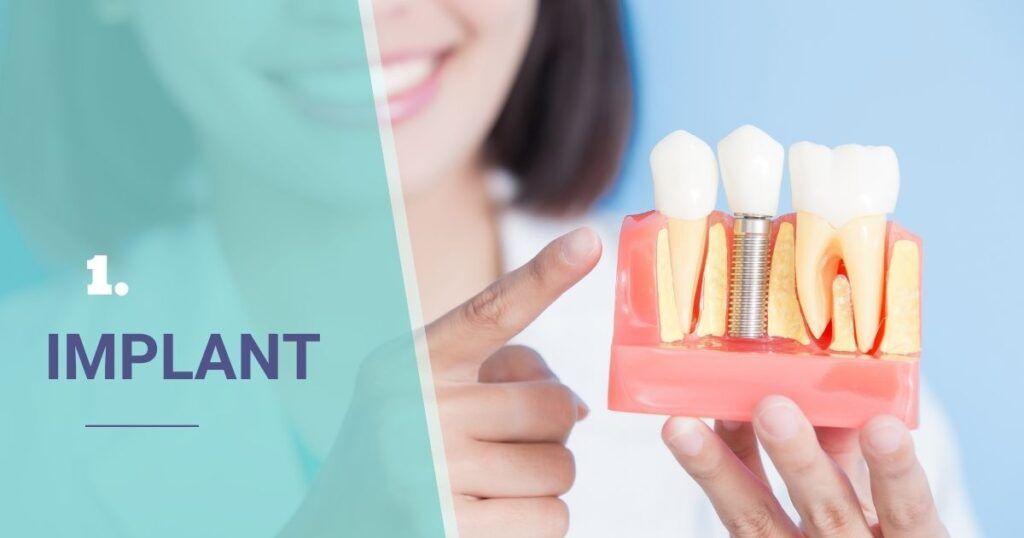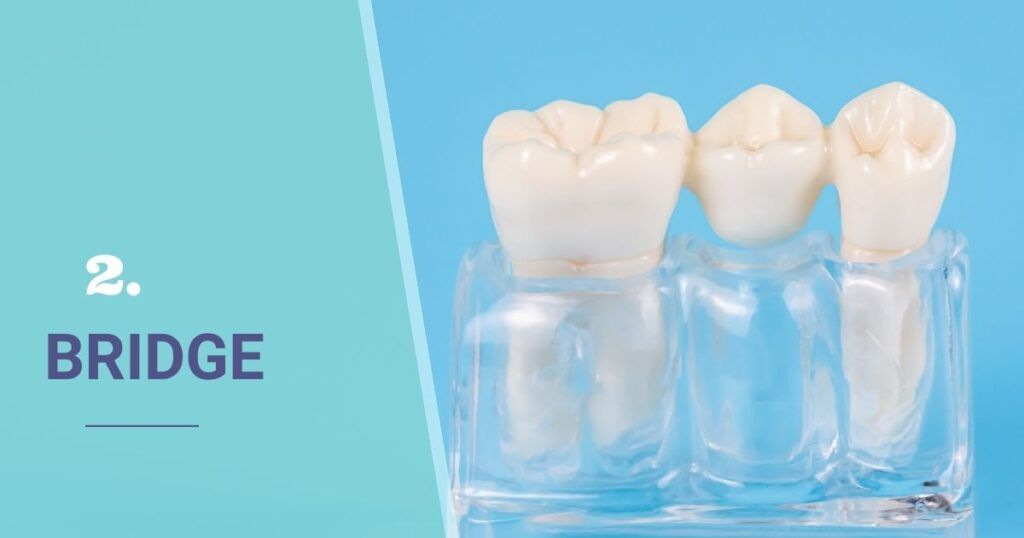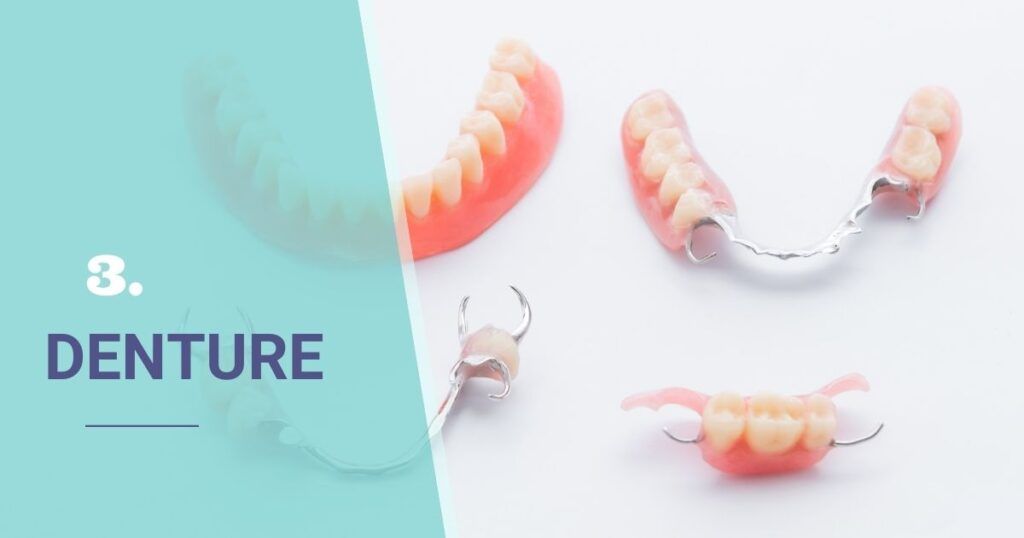|
Teeth can be missing for many reasons, including dental decay, tooth fracture, gum disease, genetics and accidents. If a missing tooth is not replaced, you may notice tipping of the adjacent or opposing teeth into that space over time. These changes can lead to increased wear of certain teeth, or spaces between the remaining teeth where food can get stuck. If you are looking to replace teeth, here are a few options: 1. Implants |

What is an implant?
An implant is considered to be the gold standard for replacing missing teeth. It is a post, usually made of titanium, that is surgically placed into the bone where the tooth is missing. The bone is allowed to heal and fuse with the post for a few months before the top portion that you see above the gums, also known as the crown, is attached.
Pros:
- High success rate.
- Does not need adjacent teeth for support (unlike a bridge).
- When a tooth is lost, the surrounding bone also shrinks, which can lead to esthetic defects, and reduced bone support for the adjacent teeth. An implant will stimulate and maintain the surrounding bone.
- Easier to keep the neighbouring teeth clean.
- It is non-removable.
Cons:
- Requires a surgical procedure.
- May require a bone graft (the addition of bone material) if the existing bone support isn’t enough.
- Treatment duration will be at least a few months before the final crown is inserted.
- Costs more than a denture or a bridge.

What is a bridge?
Like implants, bridges are a non-removable prosthesis. Unlike an implant, which replaces the entire tooth including the root, a bridge only fills in the missing crown (chewing) portion that’s visible above the gums. The portion that looks like the missing tooth is called a pontic. For the most common type of bridge, the pontic is connected to crowns that sit on the supporting teeth on each side of the missing tooth. These supporting teeth must first be modified prior to the bridge being inserted.
Pros:
- Can take as little as two appointments, about two weeks apart.
- Does not require surgery.
- It’s non-removable.
- Costs less than an implant.
Cons:
- More difficult to clean under a bridge
- Costs more than a denture.
- Supporting teeth need to be modified to support the bridge. The health of these teeth affect the success of the bridge.
- Does not maintain bone levels.

What is a denture?
A denture is a removable prosthesis that can be taken out anytime. Dentures are a more affordable way of replacing multiple teeth.
Pros:
- More affordable than a bridge or an implant.
- Can replace many missing teeth at the same time.
- The gums and bone shrink over time in the locations where teeth are missing, which may lead to the appearance of the face sagging. A denture can fill in these areas, and support your lips and cheek.
- Does not require surgery.
Cons:
- Requires a series of appointments.
- Although dentures can fill in the appearance of the missing bone, it does not maintain bone levels.
- Decreased chewing force.
- It is removable.

Which option is the best for me?
The choice is highly dependent on your individual circumstance and should be discussed with your dentist. There are many factors to be considered, including:
- your medical and dental health
- the way your teeth bite together
- the number and location of the missing teeth
- your timeline
- your financial situation
- your esthetic preferences
Dentists Near You
If you are missing a tooth, take the first step to book a consultation with our Surrey dentists at Vivant Dental in the Panorama area.
